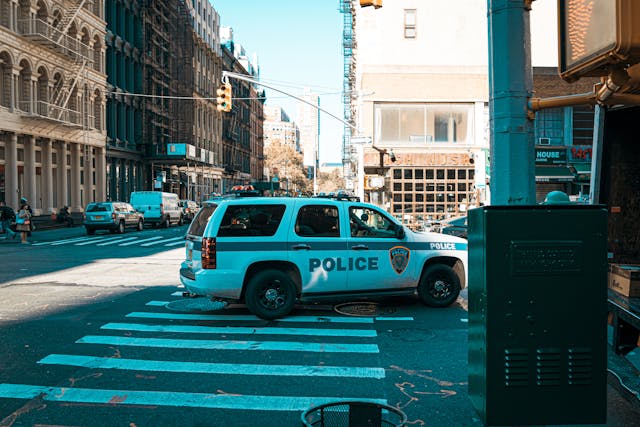In Pennsylvania, traffic citations are common, especially in a bustling metro like Philadelphia. Whether you’re navigating I-95, trying to beat the light on Broad Street, or dodging potholes near Girard Avenue, chances are you’ve seen the red-and-blue lights in your rearview at least once. But a common question many drivers ask is: Is a traffic citation a criminal offense in Pennsylvania? The answer isn’t as simple as yes or no. It depends on the type of violation, how it’s handled, and whether it escalates beyond the ticket itself.
Understanding Traffic Citations in Philadelphia
Philadelphia drivers are all too familiar with traffic enforcement. Between speed traps on Roosevelt Boulevard and aggressive parking enforcement in Center City, the city sees its fair share of traffic citations. But not every citation carries the same legal weight. In Pennsylvania, traffic offenses are generally divided into two categories: summary offenses and misdemeanors (or in rare cases, felonies).
Most routine traffic violations fall under the category of summary offenses. These include speeding, running a stop sign, or improper lane changes—essentially the kind of infractions that earn you a fine and maybe some points on your license. While summary offenses are technically criminal in nature under Pennsylvania law, they are considered the lowest level of criminal offense. You won’t be fingerprinted, and you probably won’t see the inside of a jail cell unless you ignore the ticket or fail to appear in court.

That said, summary offenses still matter. They can impact your driving record, raise your insurance premiums, and in some cases, lead to license suspension. For example, accumulating six or more points on your license can trigger mandatory PennDOT exams or suspension hearings. And for commercial drivers, a single citation can jeopardize their livelihood.
Read Also: What Is The Difference Between Full Tort and Limited Tort in Pennsylvania?
When a Traffic Citation Becomes a Bigger Problem
In some cases, what starts as a simple traffic stop can lead to more serious consequences. If you’re caught driving without a valid license, driving under the influence (DUI), or engaging in reckless driving, the charge can escalate beyond a summary offense. DUI, for example, is a misdemeanor—and in repeat cases, it can become a felony. That carries the potential for jail time, a criminal record, and significant fines.
Philadelphia police and Pennsylvania State Troopers have discretion when issuing citations and making arrests. A motorist pulled over in South Philly for speeding might get off with a warning, while another near Northeast Philly who’s caught drag racing could be charged with reckless endangerment, a misdemeanor. It’s not just about the infraction—it’s how it’s interpreted and enforced.
Failing to respond to a traffic citation also has serious consequences. Ignoring a ticket in Philly can result in a bench warrant for your arrest. The courts don’t take kindly to missed hearings, and you could find yourself picked up during a routine stop and facing jail time simply because you didn’t deal with a fine. That’s especially dangerous in areas like Kensington or West Philly, where high police presence can make these encounters more likely.
How the Philadelphia Traffic Court Works
Philadelphia used to have its own separate Traffic Court, but after a corruption scandal, those responsibilities were folded into the Municipal Court system. Today, traffic cases are handled by the Philadelphia Municipal Court’s Traffic Division. While that may seem like a bureaucratic detail, it matters when it comes to how your case is processed. Unlike suburban townships, Philly’s traffic cases are often backlogged, and judges may be more inclined to negotiate or reduce charges if you show up and advocate for yourself—or better yet, hire an attorney who knows the system.
In neighborhoods like Fishtown, Northern Liberties, and West Philadelphia, traffic patterns and police enforcement vary widely. Some areas are notorious for stop sign stings or parking traps. Knowing how enforcement works in your area can help you prepare if you’re cited. And if you’re facing more than a basic ticket, having someone who understands Philly’s traffic court process is essential.

Why You Should Take Every Citation Seriously
Even if a traffic citation isn’t a criminal conviction in the traditional sense, it can still follow you. In Pennsylvania, a guilty plea to a summary offense means accepting a criminal record. It may not come up in every background check, but it’s there. For anyone applying to jobs, seeking professional licenses, or undergoing immigration proceedings, these details matter.
There’s also the domino effect. Points on your license can add up quickly. Let’s say you get a ticket for rolling through a stop sign in South Philly. Then a few months later, you get caught speeding on the Schuylkill Expressway. Before you know it, you’re facing a PennDOT hearing and a possible suspension. If you’re a rideshare or delivery driver, that could cost you your job.
This is where legal guidance becomes critical. Many people just pay the fine and move on. But in doing so, they’re admitting guilt and accepting the long-term consequences. Fighting a citation—even a minor one—can sometimes lead to reduced charges, fewer points, or a full dismissal. And in Philly, where enforcement can be inconsistent and documentation flawed, having a legal advocate gives you a major edge.
Have an Issue With a Traffic Citation? Call Pagano Law Today
If you’ve been hit with a traffic citation in Philadelphia, don’t brush it off. Whether you’re in Center City or South Philly, Germantown or the Northeast, your best move is to talk to someone who understands the legal system inside and out. At Pagano Law, we’ve helped countless drivers fight tickets, protect their licenses, and avoid costly mistakes.
Don’t let a traffic stop turn into a criminal record. Call Pagano Law today at 215-636-0160 for a consultation. We’ll help you understand your options and fight for the best possible outcome.

Recent Comments